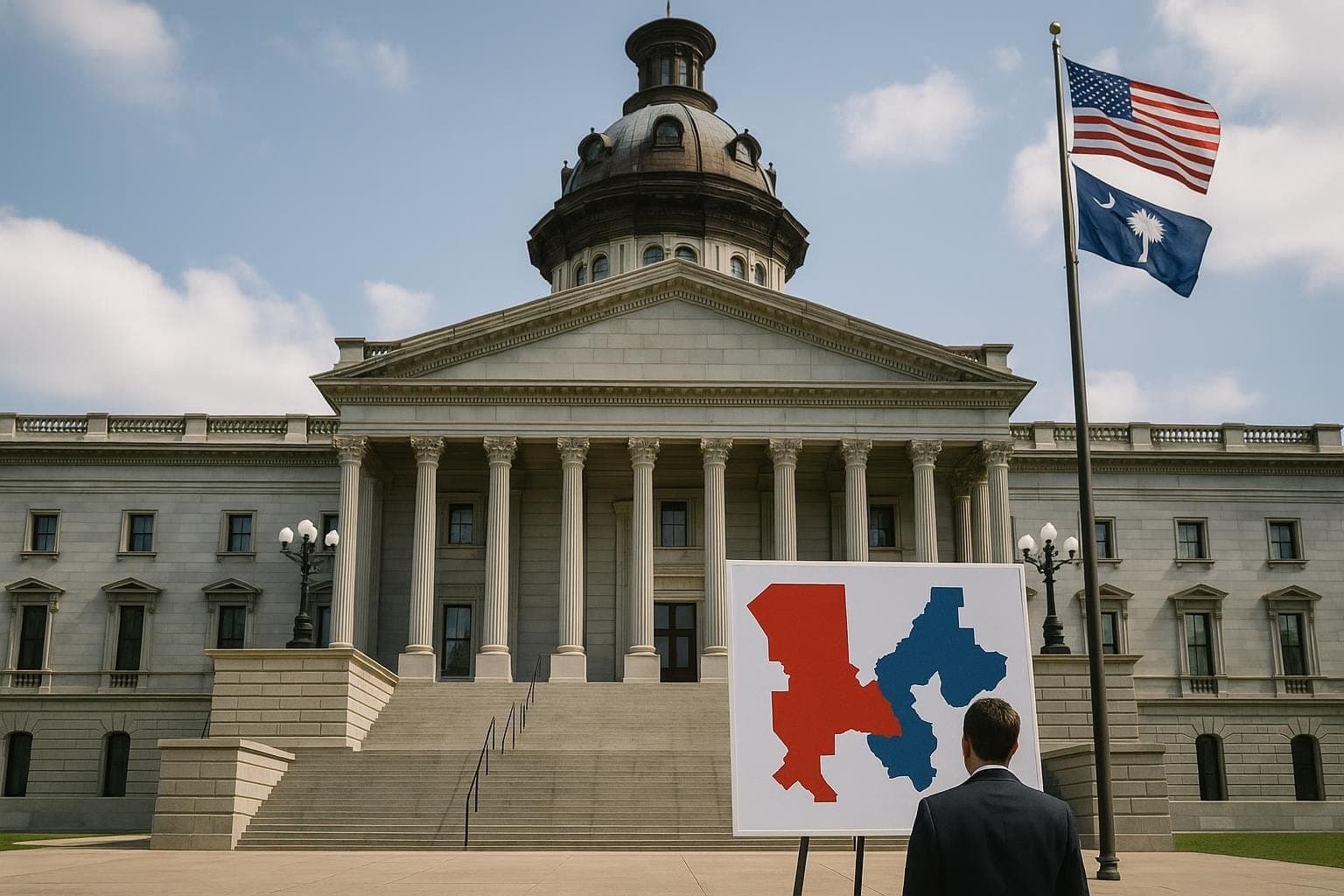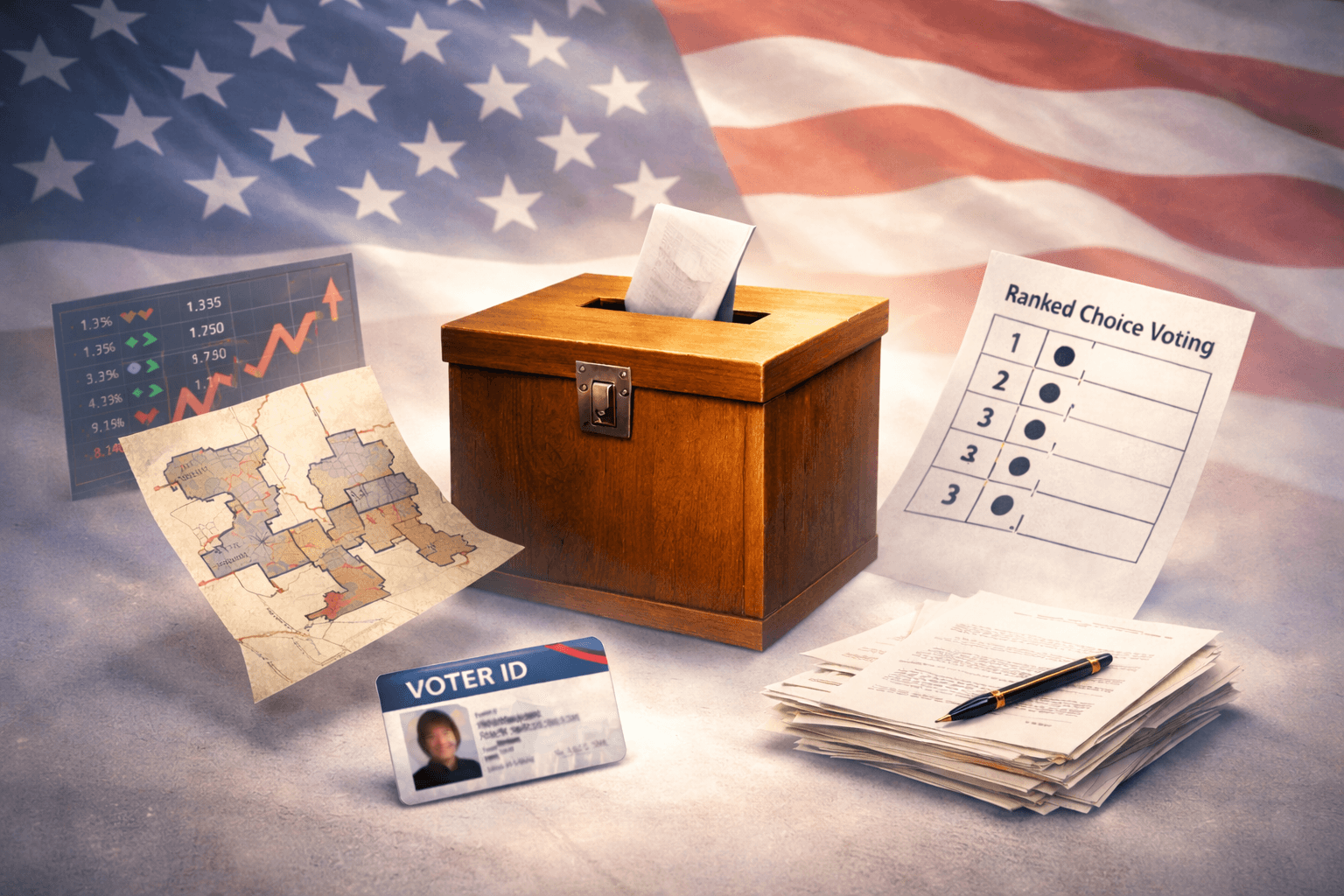South Carolina Justices Say Politicians Can Keep Picking Their Voters

The South Carolina Supreme Court has closed the door on a challenge to the state’s 2022 congressional map, ruling in a unanimous 5–0 opinion that partisan gerrymandering claims cannot be resolved by the courts.
The case, League of Women Voters of South Carolina v. Alexander, accused lawmakers of shifting the boundary between the 1st and 6th districts to lock in a Republican advantage. The League argued the map violated the state constitution’s guarantees of equal protection and free elections.
In its 22-page opinion, the court said the claims presented a “nonjusticiable political question” and dismissed the lawsuit. By declaring the issue nonjusticiable, the court effectively placed responsibility for addressing partisan gerrymandering back in the hands of the legislature, the same body that drew the map to favor its own party in the first place.
This reasoning mirrored the U.S. Supreme Court’s 2019 decision in Rucho v. Common Cause, when the justices ruled 5–4 that while partisan gerrymandering may be “incompatible with democratic principles,” it is also a “nonjusticiable political question.” Just as the nation’s highest court washed its hands of the issue five years ago, the state’s top court has now done the same.
A Warning from the Chief Justice
In a concurring opinion, Chief Justice John Kittredge pointed to the growing trend of majority parties in states such as Texas and California redrawing maps to cement partisan power. “[W]e are seeing — and will continue to see — state legislatures race to further minimize and perhaps erase the representation of the state’s minority political party in Congress,” Kittredge wrote. “These results may, indeed, be in line with each respective state’s constitution and laws, but they collectively have the effect of diminishing our constitutional republic as a whole. This is a troubling prospect for those who adhere to our nation’s founding principle that the People are sovereign. We can expect the current trend to continue unless the United States Supreme Court steps back into the fray.”
Facts Not in Dispute
The facts of the case were never contested. In South Carolina, the Legislature holds full authority over drawing district lines. Republican leaders said openly in the Statehouse, in the press, and in court that they had drawn the 1st Congressional District map to create a Republican advantage. Charleston has long been the heart of the district, but lawmakers described their intent to “pull the First red” and to meet a specific target for Republican vote share in the district.
League and ACLU Respond
“The League of Women Voters of South Carolina is disappointed that the South Carolina judiciary has held itself unable to protect the foundations of representative democracy in our state,” said Lynn Teague, vice president at the League of Women Voters of South Carolina. “Partisan gerrymandering is an attack on our most fundamental right as citizens, the right to vote. But the League of Women Voters of South Carolina will not stop fighting for fair redistricting. If a constitutional amendment is needed to protect voters, the people of South Carolina must demand that amendment.”
Allen Chaney, legal director of the ACLU of South Carolina, said the ruling underscored a dangerous imbalance. “I am proud of our case and, of course, gutted by this result,” Chaney said. “Democracy relies on a careful balance of power between our three branches of government. By washing its hands of redistricting, the Court marks itself satisfied with the idea that politicians can game the system to retain their own power and ushers in an even greater entrenchment of political extremism.”
Republican Leaders Claim Victory
Republican leaders at the State House welcomed the decision. Speaker Murrell Smith of Sumter said lawmakers had already produced fair maps after the 2020 census and that no further changes were necessary. Senate President Thomas Alexander of Oconee echoed that view, noting that both federal and state courts have now upheld the maps after years of litigation.
The Federal Case
The ruling follows a separate federal challenge to the same districts. In 2023, a three-judge panel ruled the legislature had racially gerrymandered by moving 30,000 Black Charleston County residents from the 1st District to the 6th. But in May 2024, the U.S. Supreme Court overturned that decision, concluding the dispute involved partisan politics rather than race. The justices said federal courts are barred from deciding partisan gerrymandering cases.
What Comes Next
With both the U.S. and South Carolina Supreme Courts refusing to weigh in on partisan gerrymandering, reform advocates are left with few options outside the political process. The League of Women Voters says it will continue pressing for fair maps, but the only path forward may now be a constitutional amendment approved by South Carolina voters themselves. But of course, in order to put a constitutional amendment before the voters in South Carolina, it must first pass through both houses with two-thirds vote of the members elected to each chamber of the General Assembly. And in a step totally unique to South Carolina, after voters approve the amendment, it returns to the General Assembly again. A simple majority of each legislative chamber must then ratify the amendment before it can become part of the constitution.
The Princeton Gerrymandering Project gives South Carolina’s congressional map an F for partisan fairness and an F for competitiveness. Another nonpartisan site, PlanScore, notes that the state’s House redistricting plan was more skewed than 98 percent of enacted plans nationwide.
 Cara Brown McCormick
Cara Brown McCormick





